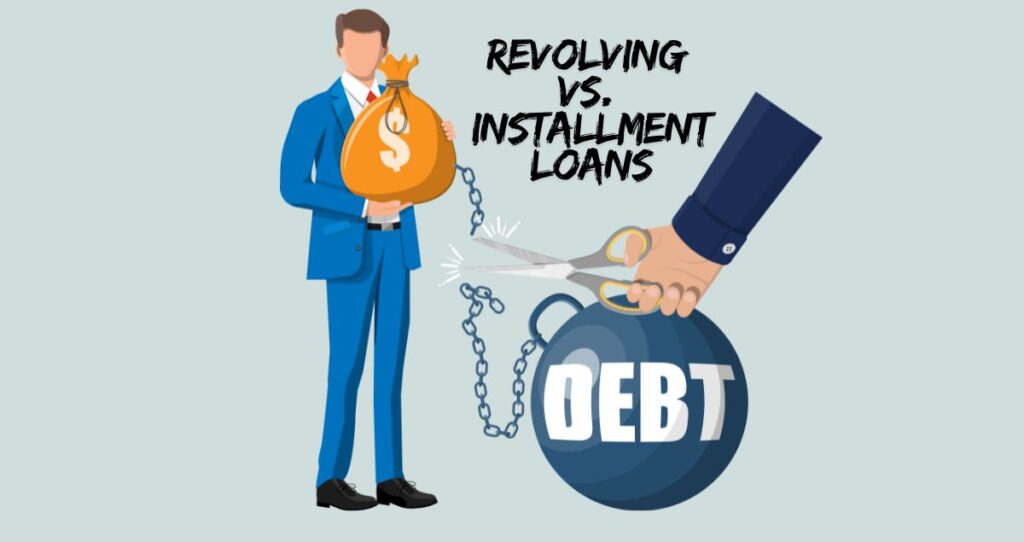Your credit history plays an important role in your credit score calculations. A good age of credit history boosts your credit score. Lenders also prefer consumers with good credit ages as it shows they have been using credit for a while, making them reliable and trustworthy. So, what is a good age of credit history, and how does your credit age affect your credit score?
Typically, 5 to 10 years of credit age is good enough to boost your credit score and qualify you for loans. To get a perfect credit score, however, you might need a credit age longer than 10 years as most consumers with 850 credit scores have decades of length of credit. This, however, does not mean you need decades of credit use to have a good credit score.
With responsible use of your credit accounts such as paying your bills on time, maintaining a credit utilization under 7%, and a lower DTI ratio, you can easily get an 800+ credit score in less than 5 years.
What is the age of credit history?
The age of credit history represents the period all credit accounts on your credit reports have been open. Since you might have multiple credit accounts on your credit reports, the credit age will be the average age of all open credit accounts on your credit reports.
Credit scoring models usually use the month or year your accounts were opened to calculate the average age of your credit history.
For example, if you opened one credit card in July 2022 and another in July 2023, the age of these credit card accounts will be 2 years and 1 year respectively. In this case, the average age of your credit is 1.5 years or (1+3)/2. Is 1.5 years a good age for credit history?
While this credit age shows you have some experience using credit, it is not enough to qualify as a good age of credit history. You need more than 1.5 years of credit history to get approved for most loans and credit cards.
What is a good age of credit history?
Lenders prefer borrowers with longer credit histories. Typically you need to have many decades of credit usage to have a perfect credit score or 850 score. An 800 credit score can easily be achieved in less than 10 years or 5 if you use your credit accounts responsibly and make on-time payments.
So, what is a good age for your credit? Generally, 5 to 10 years of responsible credit usage is a good length of credit to qualify for loans and credit cards. In 5+ years, your credit score will be well above 740 or over 800 depending on how well you used your accounts. With such a credit score and ages of credit history, you can easily qualify for loans and credit cards at competitive rates.
What is the length of credit history?
While the age of your credit history represents the average age of all open accounts on your credit reports, the length of your credit history is similar with different calculations. The length of credit history is mainly used when calculating the FICO score and three factors affect its calculations.
According to Bankrate, these factors include how long your accounts have been open including the average age of the accounts, the age of your oldest and newest account, how long each account has been opened, and how long it has been since you opened a credit account. The FICO scoring model uses these factors to determine how many points the length of your credit accounts for on your credit score.
Length of credit history vs. age of credit history
The age of your credit history is usually used on the VantageScore while the length of your credit history is used on the FICO score.
Calculation-wise, the age of your credit history is easy to calculate as it equates to the average of all credit ages open on your credit reports.
The length of credit history is a bit different in terms of its calculations. While both might indicate the same thing, the length of credit considers extra factors related to the age of each account. For example, factors like how long it’s been since you opened an account, the age of your oldest account, and the average age of open accounts on your credit reports can all be used to calculate the length of your credit history.
What do lenders say about the age of your credit?
Lenders usually give you loans based on many factors including your credit score and credit history. For credit history, they look for how long you have been using credit and your behavior during that time. Many years of credit history with on-time payments and responsible credit use make you a good borrower.
Here is what different credit ages mean when taking out credit.
- Less than six months. With such a low credit age, you might not qualify for loans. Six months is not enough track record to justify how reliable you are when using credit. Usually, it takes about six months to have your first FICO score while VantageScore can take less than six months.
- Less than 4 years. 4 years of credit usage indicates you have some experience with credit. If you manage your accounts with no late payments and other negative items on your credit reports, you should be on your way to building a solid credit history.
- 5-10 years. A 5-10 years credit history is a good credit age and if you used your accounts responsibly, you should also have an excellent credit score. But, 5-10 years is not the best credit age. Having a much longer age of credit makes you stand out.
- 10+ years. Having 10+ years of credit age is good enough to qualify for loans and credit cards.
How does credit age affect credit score?
While having a good age of credit history is essential to improving your credit score, your credit age accounts for a small percentage of your credit score. Your credit age accounts for 15% of your FICO score and 20% of VantageScore combined with your credit mix.
Even if the age of your credit accounts for a small percentage of your credit score, you still need a good age credit history to have an excellent credit score. To put it into perspective, the age of your credit history is the 3rd biggest factor on your credit score. So, a shorter credit age will still prevent you from reaching an excellent credit score even if you have excellent on-time payments and a lower credit utilization rate.
Why does the age of credit matter?
The average age of your credit is essential as it can determine whether you qualify for loans, credit cards, and mortgages. Additionally, your credit score improves over time as the age of your credit history increases. A longer credit age improves your creditworthiness as it indicates you have enough experience with credit and will more likely make on-time payments.
What is the average age of credit for people with an 800+ credit score?
A good credit history age is essential to building a good credit score. If you want an 800 credit score, you need more than a few months of credit usage. While you can build credit within a few years, it can take more than 10 years to join the 800 credit score club.
For example, it is unlikely to have an excellent credit score with only a few months of credit history. Usually, it takes years to establish a solid credit history and obtain a credit score of 800+ or higher. According to Debt.org, people with an 800 credit score usually average about 22 years of credit usage with millennials averaging more than 14 years. This does not mean you need to be a credit user for decades to have a good credit score.
How to improve the age of credit history?
Having a good age of credit history is essential when applying for loans. Lenders prefer consumers who have been using credit for a while as it shows they have enough experience using credit responsibility with on-time payments. If you are new to credit, however, you might not have enough age of credit to qualify for loans.
However, there are a few things you can do to improve the age of your credit or at least safeguard it.
Here are a few tips to improve the age of your credit to qualify for loans.
Long-term always wins
If you want to have a good credit history to qualify for loans, focus on long-term strategies. The truth about credit history is that you cannot buy your way to 10 years of credit history in a few months. You have to open accounts, use them responsibly, and later, benefit from them as time goes by.
Keep older accounts open
Closing a credit account especially an older one, can negatively lower the age of your credit history. This is because the age of your credit history is the average age of all credit accounts. By closing an account, especially an older one, you will automatically lower your credit age. This in turn might lower your credit score.
If you have an older account you no longer need such as a credit card account, put a small recurring charge like a $5 charge on the account to keep it open. This will help you benefit from the age of that card without getting into unnecessary credit card debt.
Apply for loans only when you need the money
Since the age of your credit history is the average of open credit accounts, opening a new account will automatically lower the age of your credit. That is the new account will have 0 years of age on it, resulting in a lower average age of credit history.
Keep your accounts in good standing
While having a longer age of credit history is good when applying for loans, your credit history must also be clean to qualify for loans. Even if you have 20 years of credit usage, having late payments, foreclosures, charge-offs, etc. on your credit reports will disqualify you for loans.
For this reason, you should establish a clean credit history by paying your bills on time, minimizing your credit utilization, and avoiding carrying too much debt. A longer and clean credit history helps you qualify for loans and credit cards.
Keep using your credit cards
Just because you have a credit card, does not mean it will contribute to the age of your credit history. Credit card companies sometimes close your account if it has not been used for a while. If the account is closed, your credit age will be affected. To keep your credit card accounts open, use them every once in a while. Even a small purchase will keep them open.
Extra credit tips
Pros and cons of cosigning a loan
Is Credit Karma score accurate: Which score is accurate for loans?









